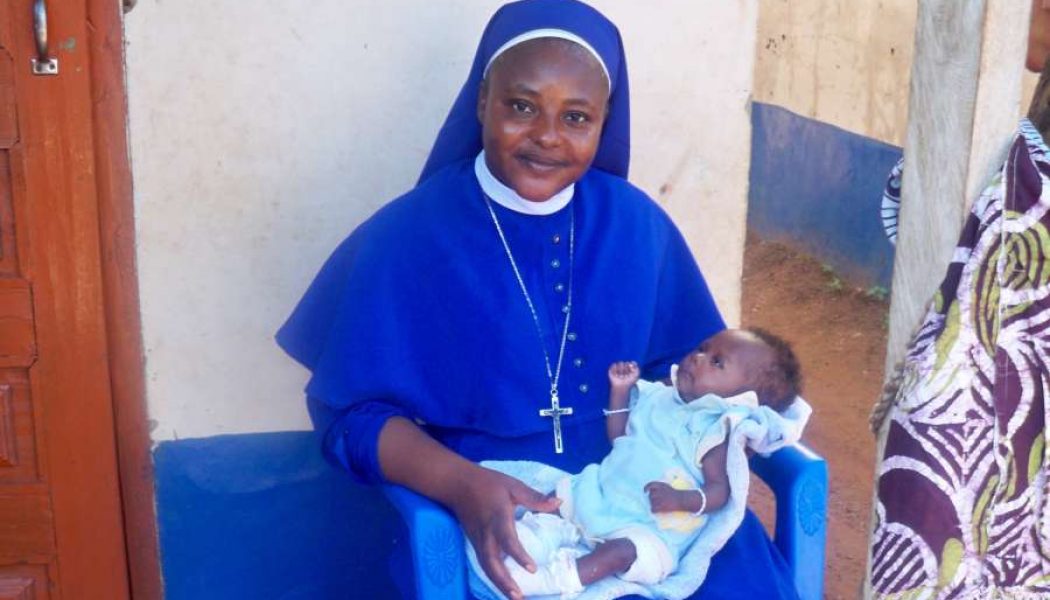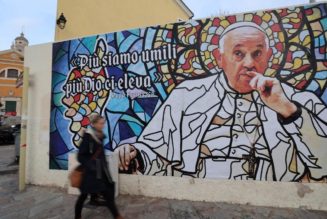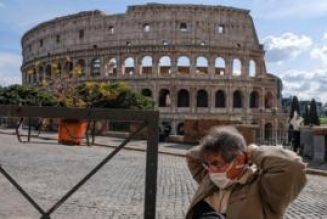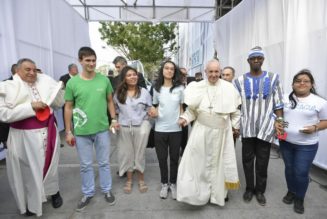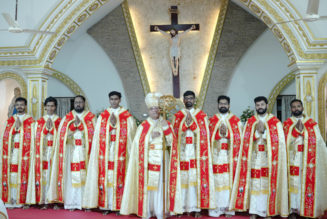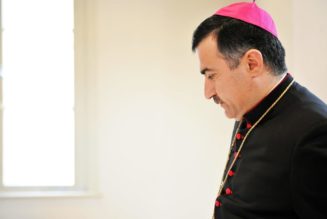
.- Sister Stan Mumuni dedicates her life to caring for abandoned children with birth defects in Ghana. When the coronavirus pandemic spread to West Africa, she said that she ran to the market to buy soap and supplies, but the prices had already tripled.
“We ran to the place. The price has gone too high. We have to get food to store food to be able to feed these children,” Sister Stan said at a virtual symposium June 23.
Some of the children cared for by her religious order have such severe disabilities that they cannot eat solid food, but rely on milk. “Getting milk to feed them everyday was very, very hard,” she said.
“Many people are dying of hunger. We live in a poverty zone. … With the pandemic we have to struggle with the little we have to be able to even reach out to others to support them.”
As parts of Ghana went into lockdown, Sister Stan said that she received more and more phone calls. First, there were calls from the special needs schools asking her order to come pick up the orphaned children and bring them to their house as the schools closed.
Then there were the calls concerning newborn disabled children whose lives were at risk.
The Marian Sisters of Eucharistic Love, founded by Sister Stan in 2009, provide a home for children with special needs who were often rejected by their families and communities because of superstitious beliefs that associate birth defects with witchcraft.
“At this period too, we have been called by so many priests: ‘Please rescue a child that is in danger,’” she said.
“‘Please, Sister, come, we have rescued two children that they wanted to kill them.’ ‘Please come, a woman gave birth and died and that child is considered ‘witch’ … and we need to do something about it.’”
Sister Stan said that although movement had become very difficult, she knew that God was calling her order to rescue these children.
She recalled that she had heard this call very distinctly in the founding of the Marian Sisters of Eucharistic Love: “Christ told me: ‘Even though you have nothing, I am telling you to go and rescue my children.’”
“All this we have to risk our lives to go in search for such innocent victims,” she said. “Christ said: ‘Let the children come to me’ … children are precious to God.”
She added: “Our mission here on earth is to keep rescuing life, rescuing souls, and to keep spreading the good news of the kingdom of God.”
Sister Stan was one of several sisters who shared her religious order’s experience of the COVID-19 pandemic in the “Women Religious on the Frontlines” virtual symposium co-hosted by the U.S. and British embassies to the Holy See.
Sister Alicia Vacas, regional leader of the Comboni Sisters in the Middle East, was also called to take risks to serve those in need amid the pandemic.
“Unfortunately one of our communities in Bergamo got infected at the very beginning of the coronavirus emergency, and we started receiving very bad news from the community,” Sister Alicia said at the symposium.
“And several young sisters, several of us nurses, we volunteered to go and reach them and to help them.”
Once she arrived in the town of Bergamo, located in Lombardy, the epicenter of Italy’s coronavirus outbreak, Sister Alicia said that the Comboni motherhouse “was in real chaos” because “everybody was sick.”
She estimated that 45 sisters of the 55 living in Bergamo were ill. Ten Comboni sisters from her community died during the outbreak.
“It has been a very powerful experience to live from inside the suffering of the people in Bergamo,” she said, adding that it has been an experience of Christ’s Passion.
“As a Comboni sister, I think it has been only a privilege … sharing with people’s lives, with people’s sufferings,” she said, calling it a “gift from God for the whole congregation.”
Sister Alicia, who is now back at the convent in Jerusalem, said that the coronavirus pandemic is not over and “the situation is very worrying” for many sisters in other parts of the world.
The World Health Organization reported June 22 the largest single-day increase in coronavirus cases, with more than 183,000 new infections documented worldwide in 24 hours.
Sister Alicia said: “I have been in contact with many sisters working in places like Jordan … in South Sudan, in Chad, in Ecuador, and I can see the sisters exposed to many risks with no equipment at all. They don’t work in many cases in government hospitals. They don’t have access to tests. So they are receiving suspected cases and patients without any possibility of protecting themselves.”
“For many other sisters who are not working in medical issues, they have to face this explosion … of poverty and social crisis, and many sisters … are dealing with starvation,” she added.
Callista Gingrich, the U.S. Ambassador to the Holy See, said that the coronavirus pandemic “has caused vast unemployment, poverty, and food insecurity — further challenging the work of women religious.”
“I want to take a moment to recognize and honor the tremendous sacrifices made by women religious during this pandemic,” she said. “Here in Italy, and around the world, many faithful sisters have made the ultimate sacrifice while caring for others. As we continue our work together, let us preserve and honor their memory.”
